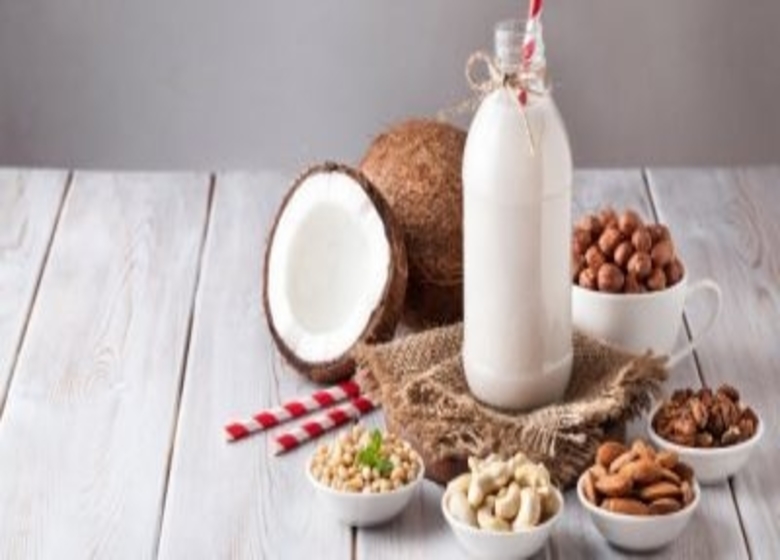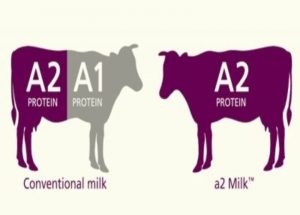Choosing Plant-Based Milk
Over Cow Milk?
If you don’t already know about plant-based milk, you need to visit a supermarket and look around. Because it is present everywhere and people are looking for it.
The increasing popularity of non-dairy milks can be attributed to many factors. More and more people are consuming non-dairy alternatives, whether due to an allergy, lactose intolerance or adherence to a vegan/plant-based diet. There are also others who are concerned over saturated fat levels, hormone content, and antibiotic use in dairy cattle.
WHAT IS PLANT BASED MILK?
Plant based milk is a lactose free substitute to the well-known cow milk. There are lots of reasons to switch to this plant based alternative. The most noted reason is being lactose intolerant. Other reasons are the good taste and the low amounts of fat in most plant-based milks. Plant based milks are also very suitable for people that choose to eat vegetarian or vegan.
Thanks to fortification, plant-based milk often has 50% calcium per serving than dairy milk. Now it’s no wonder consumers are opting for non-dairy options for health reasons. What’s more is that plant-based milks are usually very easy to digest, with some offering fewer calories and sugars. There are a plenty of options to choose from and that makes it even more exciting.
When it comes to plant-based dairy alternatives, consumers buy them mostly for flavor (48%), but more than one-third (36%) also value the provided health benefits. Some other determining factors were found to be price (37%) and source of ingredients (33%).
Plant-based milk claim other advantages as well. They have a longer shelf life than dairy-based milk.
Although, there is no stated classification of these plant-based milk alternatives but a general one into five categories is as follows:
- Cereal based: Oat milk, Rice milk, Corn milk, Spelt milk.
- Legume based: Soy milk, Peanut milk, Lupin milk, Cowpea milk.
- Nut based: Almond milk, Coconut milk, Hazelnut milk, Pistachio milk, Walnut milk.
- Seed based: Sesame milk, Flax milk, Hemp milk, Sunflower milk.
- Pseudo-cereal based: Quinoa milk, Teff milk, Amaranth milk.
Let’s look at some of the most chosen plant-based milk. READ ON AND CHOOSE YOURS.
Almond Milk:
Almond milk is obtained from almond nuts. This plant-based milk has a creamy texture and nutty flavor. It also has zero lactose and cholesterol present in it. There are unsweetened almond milk varieties available in the market, which is a healthy option for those who prefer it sugar-free. Due to its nutritional content, it is the best alternative for those who have an intolerance to dairy or especially to soy products. Almond milk prepared from almonds is low in fat but high in energy, proteins, fiber and lipids.
Almonds contain minerals like iron, calcium, phosphorus, magnesium, potassium, sodium and zinc. The other nutrients present in this milk which are essential for a healthy body include vitamins – C, E, B6, Niacin, thiamine, riboflavin and folate.
Con: Almond milk contains very little protein, coming in at just 1 gram per serving.
Rice Milk:
Rice milk is a dairy-free type of milk that is prepared with boiled rice, and brown rice starch and syrup. This popular milk alternative has a wide range of impressive nutrients, including roughly 140 calories per cup, and only about 3 grams of fat which is much less than 10 grams of fat in a cup of whole cow’s milk. There is no cholesterol in this milk variant which makes it much better for heart health. Majority of rice milk brands are fortified with other minerals. Cow’s milk does provide a better range of minerals but rice milk often has added levels of Calcium, Iron, Vitamin A, B and D to make it roughly equivalent to cow’s milk. The top health benefits of rice milk include strengthening the bones, aiding skin health, increasing energy metabolism and optimizing digestion.
Con: Rice milk contains just 1 gram of protein per serving and contains more sugar than cow’s milk.
Soy Milk:
Soymilk is a fat-free milk substitute extracted from the soybean, which is a legume (also known as a member of the pea family). Soymilk can help improve cardiovascular health and reduce the risk of many postmenopausal problems. Also, the presence of high-quality protein and vitamins in soymilk makes it a beneficial part of a plant-based or a vegan diet. Unfortified soymilk, either original or vanilla, is a good source of energy, protein, dietary fiber, and fat. It contains minerals, including iron, calcium, potassium, phosphorus, magnesium, sodium and zinc. Various vitamins that are also found in soy milk are folate, thiamine, riboflavin, niacin, B6, B12, D, E and K. All of these nutrients help in maintaining a good health.
Con: Soy milk has a “beany” flavor that may be a turn off to some people. Also, soy is one of the most common food allergens, especially in kids.
COCONUT MILK
Coconut milk comes from the fruit’s white flesh. You may hear mixed messages about coconut milk because of its high saturated fat content. However, the type of saturated fat in coconut milk is probably more neutral than harmful. In case, you are avoiding other prime sources of saturated fat (such as whole milk, cream, cheeses, and fatty cuts of red meat), and are also eating lots of produce then adding coconut milk to coffee and other foods is probably fine. Coconut milk (per cup) contains 45 calories, 4.5g fat, og protein, 1g carbohydrate, <1g sugar and og fiber.
Con: Coconut milk contains high levels of calories and fats. Consuming too much of the milk and eating a carbohydrate-rich diet can result in weight gain.
OAT MILK
Oat milk is made by soaking and blending steel-cut or rolled oats with water and then straining them through cheesecloth to separate the milk from the oats. Oat milk is unique as it is free of many of the allergens found in other types of milk. It also contains beta-glucans which is a soluble fiber that may provide heart health benefits Just like rice milk, oat milk is generally well tolerated, making it more suitable for people with food allergies and intolerances. Unlike other non-dairy contenders, oat milk boasts about soluble fiber. It is the kind that helps lower cholesterol. (You still get more of these beta glucans in a cup of oats than you do in oat milk.) One cup of oat milk may contain 120 calories, 5g fat, 2g protien, 6g carbohydrate, 5g sugar and 2g fiber.
Con: Oat milk may not be your best option if the rest of your diet is already filling up your recommended intake of carbs. Also, Gluten-contaminated oat milk may cause digestive problems for people with celiac disease or non-celiac gluten sensitivity.
Some basic things to look out for while choosing plant-based milk are:
- Try to choose unsweetened milks and avoid varieties that are high in sugar.
- Unless you are consuming plenty of dark leafy greens and beans every day, choose brands fortified with calcium. (Most plant-based milks are fortified with calcium but some might not be)
- You can have 1-2 serving of your chosen plant-based milk. It is not the ultimate source of to gain your calories. Add more healthy eatable items to your list.
Also read: Animal milk vs. Plant milk, which is a healthier choice?
Benefits of milk – Hot or cold
Classification source – https://www.ncbi.nlm.nih.gov/pmc/articles/PMC5069255/













